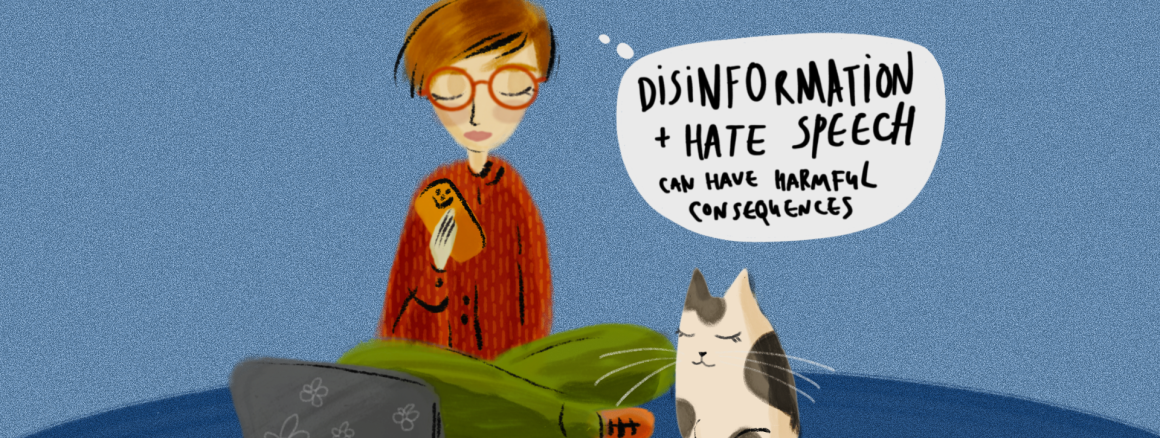Weaponising Fear: How Disinformation Exploits ‘Child Protection’ to Undermine Trans Rights in North Macedonia
December 6, 2024
In North Macedonia, trans women remain a relatively rare and marginalised group, with limited visibility and representation in public life. However, this has not stopped anti-gender movements and conservative groups from exploiting the issue, often using parents and children to stir controversy and undermine trans rights in the country.
Disinformation often revolves around the theme of protecting children, as the social and cultural environment tends to be conservative. This has become a common strategy used by those opposing transgender rights and gender inclusion. These narratives typically frame the issue as a threat to children’s well-being, suggesting that transgender rights or acceptance might lead to harmful consequences for minors.
The goal of this case study is to deconstruct the narrative surrounding the rights of trans women in North Macedonia. It uses the example of disinformation claiming that parents will be forced to send their children to school dressed in clothes of the opposite gender as a key point of analysis.
Fact or Fear-Mongering?
An unnamed woman in a video, speaking in Serbian, claims she was fined 263 euros in Germany for refusing to send her son to school dressed as a girl. This story is presented as an example of how European countries supposedly force parents to accept gender nonconformity for their children.
This video was disseminated across the Western Balkan countries and eventually reached fact-checking services, which debunked the claim. They clarified that there is no credible evidence to support the claim, and such a fine does not exist within German laws or policies.
A few months later a similar instance of disinformation emerged in Skopje, where false claims were spread suggesting that a school in the capital of North Macedonia was enforcing gender expression policies that required students to dress according to the opposite gender.
The Municipality of Aerodrom in Skopje has denied false claims about gender-related activities at the school. The proposed student activity was reviewed and modified after consultation with school management and municipal services, with no gender expression policies being implemented.
Manipulation of Parental Concerns
By framing their arguments around the protection of children, these narratives exploit emotional responses. They argue that trans rights policies, such as gender recognition and healthcare access, could negatively affect children. This tactic distorts the issue by shifting focus from the rights and well-being of trans individuals to a fabricated “danger” to children, triggering fears and uncertainty.
Anonymity and Lack of Sources
The unnamed woman in the video speaking in Serbian adds a layer of anonymity, making the claim harder to verify and allowing it to circulate unchecked. This tactic uses the lack of credible sources to make the claim seem more like a personal story, thus appealing to people’s empathy and suspicion.
Exaggeration of Isolated Incidents
The disinformation often exaggerates an isolated event or misunderstanding to make it seem like a widespread issue. In this case, the proposal by students to have a Gender Swap Day in school was misrepresented as an official policy, leading to fears that it was part of a larger, coordinated effort to enforce gender nonconformity across the country.
Furthermore, those who spread disinformation often exploit misunderstandings or ambiguities in real events or policies to create a false narrative. In the case of the Gender Swap Day in Skopje school, a proposal for a student activity has been misinterpreted and taken out of context, but those spreading disinformation used this to imply that a formal policy was being implemented. This tactic relies on people’s lack of critical thinking and inability to differentiate between a rumour, a proposal, and an actual policy.
Manipulating Public Opinion
By framing the issue as part of a broader agenda imposed by European governments or local authorities, the disinformation suggests that parents are powerless to resist such changes, further fueling resistance and division. It turns personal responsibility into a collective problem, often based on mistrust of authorities or perceived foreign influence.
Manipulation of Social Media and Localised Claims
Disinformation is often disseminated via social media, targeting specific regional groups or communities. The claims about Gender Swap Day in schools in Skopje were spread through local news portals and social media platforms, where misinformation can spread quickly among people with shared concerns or beliefs. This localised approach makes the disinformation seem more relevant and trustworthy to the audience.
Dividing Public Opinion
Disinformation campaigns often aim to divide public opinion and deepen existing societal divisions. By presenting the issue as a battle between “traditional values” and “progressive forces,” these narratives manipulate the public into taking sides. This division can cause tension within communities and distract from more substantive discussions about policies and rights.
Claims about children being forced to dress like the opposite sex are a form of disinformation that, when paired with hate speech, can have particularly harmful consequences. These false narratives exploit existing fears and misconceptions about gender identity and expression, portraying LGBTQI+ individuals and policies promoting gender inclusivity as threats to traditional values. When such claims are amplified by hate speech, they not only falsely inform the public but also stigmatise transgender and gender-nonconforming individuals and expose them to additional discrimination.
Hate speech in this context intensifies the emotional and social divide, using inflammatory language to further vilify those advocating for gender equality. It creates a hostile environment where LGBTQ+ individuals are unfairly targeted, leading to discrimination, violence, and emotional harm. Additionally, disinformation and hate speech undermine trust in institutions and policies designed to protect human rights, further polarising society and hindering progress toward inclusion and acceptance.
Together, disinformation about gender and hate speech distort public discourse, fueling division and fear, while preventing meaningful discussions about the rights of all individuals, regardless of their gender identity.
Author: Despina Kovacevska
Illustrator: Lana Nikolić
